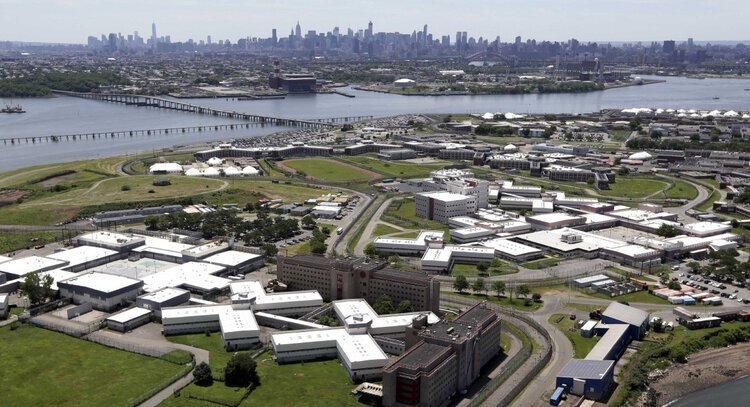Opinion: New York Should Do Better for Moms on Rikers
/Rev. Sharon White-Harrigan encourages the city to utilize the closed Lincoln Correctional Facility in Harlem to house women and gender-expansive detainees after the Rose M. Singer Center closes on Rikers Island. AP file photo by Seth Wenig
By Rev. Sharon White-Harrigan
Imagine if the only way to see your mother or child this Mother’s Day involved several hours on public transportation, multiple security checks and guards watching your every move.
That is the reality for families of the roughly 300 women and gender-expansive people at the Rose M. Singer Center on Rikers Island. Roughly, 80 percent of incarcerated women are mothers and primary caregivers. They are the glue that holds families together, and when they are locked up, their kids, relatives and neighborhoods suffer alongside them.
My daughter was only 3 years old when I was sent to Rosie’s for defending myself against an attempted rape. Instead of getting counseling I was put in a cage. The most painful part was being away from my child. My parents – her grandparents – took on the responsibility of raising a young girl and the financial, emotional and physical toll of doing that while their daughter was in jail.
Over 90 percent of the population at Rosie’s are awaiting trial and are presumed innocent. The majority are there because they cannot afford bail, and are ultimately not convicted, according to the Rikers Commission. These mothers, daughters and sisters are returning to our communities with the trauma of jail, on top of the trauma most of them were already struggling with before their incarceration.
Nearly 81 percent of those at Rosie’s have mental health concerns, compared with 46 percent of men. An estimated 77 of women in jails and prisons nationally are victims of domestic violence.
Rikers is in a humanitarian crisis, and the city’s plan to shut it would replicate or worsen conditions for those at Rosie’s. Women and gender-expansive people would be among the last groups to leave in 2027. They would be relocated to a new Kew Gardens facility where they would share spaces and staff with men. At least Rosie’s is a standalone facility. Exposure to men, and potentially to one’s own abuser at Kew Gardens makes this plan dangerous.
The mothers and daughters at Rosie’s deserve better. Many can be safely brought back to our families and communities to get treatment, services and support.
For those who remain, Governor Hochul and Mayor Adams should transform the closed Lincoln Correctional Facility in Harlem into a Women’s Center for Justice. Lincoln would be a more readily available, centrally located site that is separate from men. Former NY State Chief Judge Jonathan Lippman, chair of the Rikers Commission, and the Mayor’s Social Justice Commission and others have endorsed Lincoln for this purpose.
Mayor Adams can make New York City a national leader in the treatment of women and gender-expansive people at Lincoln. The Women’s Center for Justice can use a new model of “Reentry at Entry” that focuses on providing therapeutic services, family unification, and skills building. This would break the cycle of incarceration and put women and their families on a path to health and stability, making communities safer.
This Mother’s Day, our hearts are with the mothers at Rosie’s, and those with children at Rikers. The governor and mayor can give them safety, dignity and justice by transforming Lincoln into a Women’s Center for Justice.
Rev. Sharon White-Harrigan is the executive director of the Women’s Community Justice Association, which runs the #BeyondRosies campaign.




